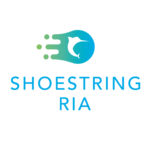

Protect Your RIA’s Assets with Insurance
May 10, 2022 | RIA Resources
Introduction
With your independent RIA up and running, it’s time to protect your business and its assets and shop around for insurance.
This may not be the most exciting task, but it will help you avoid major headaches down the road. Below we discuss some of the different insurance options that are important for RIAs to hold and what each one covers. We recommend that all new RIAs seek insurance as soon as possible, including errors and omissions, workman’s compensation, and health insurance.
These insurance policies cover you in three ways: from mistakes made by you or your employees, for your employee’s health needs, and for injured employees on the job. Also, attractive benefit packages attract better talent, so focusing on health benefits early on is wise.
E&O Insurance
We recommend obtaining errors and omissions insurance, even if your state doesn’t require it. Liability insurance protects you in the event you or your RIA unintentionally runs afoul of regulatory rules, too. Everyone makes mistakes. But there’s also a growing trend among some firms to require E&O before they’ll work with you.
E&O insurance typically covers:
- Errors and oversights not caused by negligence
- Undelivered services
- Missed deadlines that cause financial harm
- Protection against negligence claims
Among scenarios relevant to RIA’s, E&O doesn’t cover:
- Any type of injury claim (covered by general liability insurance)
- Any type of property damage claim (covered by a business owner’s policy)
- Use of business-registered vehicles (covered by commercial auto policies)
- Any issues as a result of work completed before the policy was in effect
Some custodial firms like Schwab now require RIA clients to carry at least $1 million in aggregate E&O coverage to service those firms, pointing to increases in fraud, cybercrime, and a turbulent market. But these requirements shouldn’t be the only reason why you seek an E&O policy. The early days of your new RIA are its most fragile, and legal or regulatory troubles could sink it.
While there are exceptions, E&O insurance pays for the costs and any legal fees resulting from an incident. It’s not that expensive considering what it covers, and most firms will pay less than $1,800 per year.
There are several E&O insurance carriers that cater to the RIA industry. The National Association of Professional Advisors (NAPA) offers $1 million in E&O coverage through Nationwide starting at about $72 per month, and Insureon has a page on its site that allows you to pull quotes from multiple carriers, which we’d recommend to save some time. Just be sure to select a quote with a minimum of $1 million in coverage.
Workmans Comp
If you’re a sole proprietor, you don’t need to purchase workman’s comp insurance so you can skip this section if you’d like. However, if you plan to hire employees, a worker’s compensation policy is necessary, even for RIAs. Texas is the only state in the U.S. that doesn’t require that you carry a workman’s comp policy, and although there are some exceptions (which vary by state), a majority of businesses don’t qualify for them.
While it might sound odd considering there is little, if any manual labor involved in advisor work, your employee only needs to prove that they were injured while on the job. This includes slips and falls, workplace violence, and fires. Almost 1,800 people died from these accident categories in 2017.
Now, accidents do happen. This could be an employee slipping on a patch of ice that your complex maintenance crew missed, a breakroom accident, or any other mishap that isn’t due to their negligence.
Most businesses are required by law to carry workman’s comp, and coverage is available in every state. Your E&O insurance provider may also offer workman’s comp (and other general liability insurance coverage), so check there first, as it might be cheaper to bundle policies from the same company.
Health Insurance
You’ll want to also investigate health insurance options regardless of whether or not you have employees. Since you have to incorporate your independent RIA, the business can pay for your premiums as an expense.
With employees however, insurance is a necessity either by law, or by the job market itself. While the Affordable Care Act only requires businesses with 50 or more employees to offer health insurance to 95% of their full-time workforce (the “employer mandate”), you won’t attract high-quality talent without it. According to Satista, nearly two out of every five job seekers cite “overall compensation” as a primary factor in accepting or declining an offer. This includes health insurance benefits.
The best place for small businesses, including RIAs, to seek healthcare options is the Small Business Health Options Program. This ACA program allows small businesses to seek group health insurance as a pool, resulting in lower premiums than buying from the carriers themselves. Both dental and health insurance plans are available, and like individual plans you might already be receiving from an ACA marketplace plan, your business might be eligible for premium credits to offset the costs.
Conclusion
Insurance is important to the long-term stability of your RIA. Mistakes and accidents happen, no matter how much you try to prevent them. Liability insurance is perhaps the most important, especially with Schwab and soon others requiring coverage before they’ll even talk to you.
If you plan on employees, first focus on obtaining workman’s compensation and health insurance plans. Once you have those in place, start considering other employee benefit options, as you’ll need it to attract better talent. There are other insurance and benefit options to consider, such as dental, vision, HSAs, 401k and so on, but remember, E&O, workers comp, and health insurance should be the first policies to obtain.
The Shoestring RIA is a series of articles written and published by the BillFinTM team at Redi2 Technologies designed to help RIAs as they start out on their own. We recognize just how challenging it is to venture out and build a successful business. Our articles will be focused on helping these new businesses with a wide range of topics.

